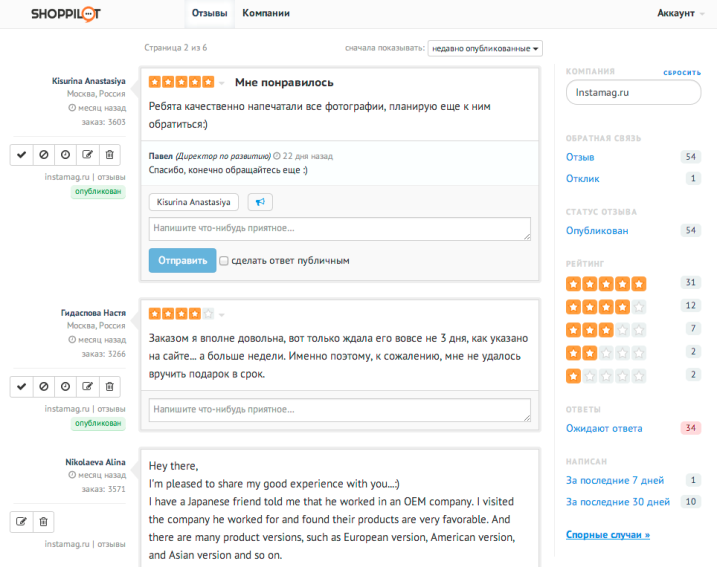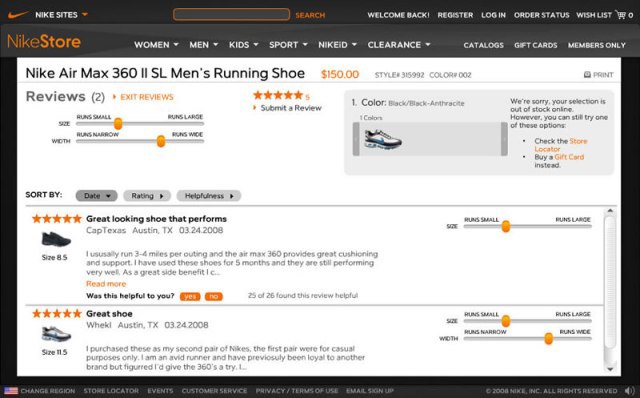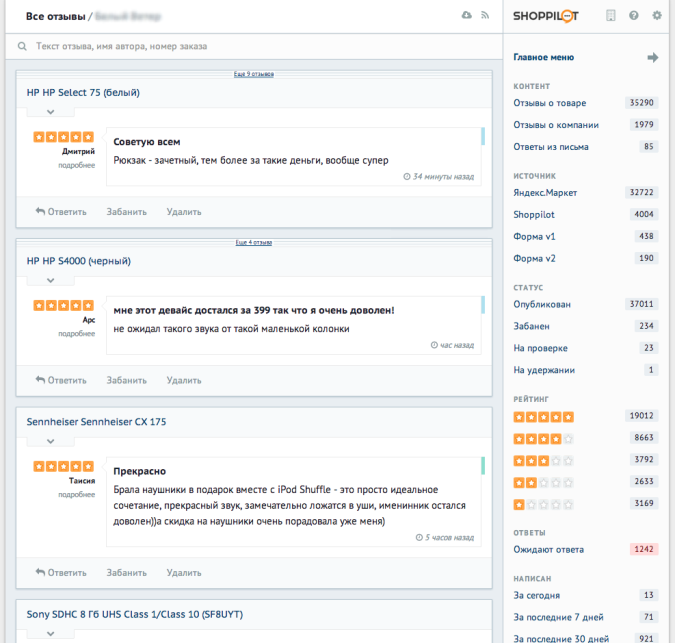The history of the project SHOPPILOT: From fakapu to a startup

Disclaimer: We, the Witget project, are developing our own conversion enhancement service. Now our team is accelerating in the IIDF along with twenty three other projects. In one of the previous articles, we talked about acceleration weekdays, namely about how traction rallies take place . Continuing today, we want to share the story of one of the projects, ideologically close to us, the SHOPPILOT service - a platform of reviews and ratings for e-commerce, aimed at increasing sales of online retail.
About the founders:
As a child, Stanislav Bai moved from sunny Anapa to the home of Mercedes-Benz, in the German city of Stuttgart. He studied under the dual system, now an economist and an IT specialist in one person. He worked in the field of project automation until 2007. The German light and pleasant measured life was not sweet to him, he wanted a harsh Russian reality, so Stas decided to return to his homeland. In his native homeland, he tried himself in an IT startup related to real estate, which was developed with the assistance of the FastLane Ventures Foundation. There he met his current partner in SHOPPILOT, Sasha Chaychuk, a Ural telecommunications operator, who also went to Moscow to escape boredom. In Chelyabinsk, Sasha managed to work for one of the cellular operators, as well as write a robot for electronic trading. When I moved to Moscow, I found myself in the development of a money transfer system at UnistreamBank, then I switched to an IT start-up, where I met Stas.
Stas on the right, and Sasha, respectively, on the left:
')

We talked to the guys, and they told us the story of their project.
Stas:
“In Germany, e-commerce is much better developed than ours. One of the main problems in the Russian online trading is the lack of trust. The average conversion of Russian e-commerce is 1%, in Europe it is about 3%. After living in Germany, I was constantly thinking about how, in our country as well, to increase the credibility of online purchases. I thought and thought and thought: for this, there are quality marks and reviews! But first things first.
Sasha and I worked in the same project at FastLane in real estate, and then left together. This project is now closed. True, not because we left. Then I started working at KupiVip, where I was the executive director of the Reliable Purchase project: they tried to create a sign of trust for online stores.
This badge looked like this:

The project was part of the KupiVip holding. What did he do? Accredited online stores in accordance with the requirements that were drawn up on the basis of the legislative framework (13 regulations), and arbitrary metrics that project participants put forward. For example, this is the speed of response of the operator when calling the store, the speed of delivery (declared and actual). We made a test purchase: we placed an order, took photographs of the goods brought by the courier, checked the presence of all the checks and returned it under the pretext that it does not suit us. As a result, the store was assigned a certain badge - a guarantee of reliability.
The market initially treated us with skepticism, without attaching any significance to this peculiar quality mark: anyone can do this. Now the project is slowly developing, but I left there after no one supported the proposal to add order statistics and insurance to the service. And I just tried to learn from the European experience, as we often do now.
In Europe, when buying for up to $ 500 in an online store that participates in the product insurance program, the buyer is protected from any incident due to the fault of the store. This is the so-called buyers protection. There are various processing centers that are trying to implement such a service in Russia, but here you need to find a partner that everyone trusts: a large insurance company with a well-known brand.
In general, leaving attempts to create a guarantee of reliability, I began to think about other ways to increase trust in the online store. We saw that in Russia there is no project that clearly deals with reviews: collects by customer, accumulates from third-party sources and shows them on the site. In addition to increasing brand confidence, reviews involve in the process of communication with the company: when you write a review, you think about the product that you bought, you remember the quality of the service, and this strengthens the relationship.
I phoned with Sasha, we drank coffee. 50 times. The first 49 times the thoughts were the same: the idea sucks, nobody needs it. For the 50th time, for some reason they decided to try it, the company was registered in February 2013. Moved first in the direction of feedback on the company. We were equal to European companies that collect feedback on online stores and earn well on this: TrustPilot (Denmark), Ekomi (Germany), TrustedShops . In Europe, 70-80% of online stores have their badge on their websites, the analogue of which we wanted to create in Russia. They also have a partnership with Google, which we do not have, and thanks to which their services are very expensive.
In Russia, there is more than enough skepticism in this area. Many consumers say: why read the reviews, they are still fake. Indeed such a problem exists. We worked with her and sought credibility through close cooperation with the online store: they sent us information about orders: e-mail, full name of the buyer. Our system automatically sent an invitation to leave a review by email when the product was delivered. The first prototype of the service was ready in April 2013.
Page of reviews in a cheap board, old version:

The link was generated separately for each purchase, so only those who made the order in the store had the opportunity to rate. Hence the accuracy of the reviews. Our site reflected the rating of products / companies based on already collected reviews. This widget had a link to the store profile, which gave him extra traffic.
The profile of the store on our website, where all the reviews about it are collected, could be easily found through a search, driving in “reviews + store name”. As a rule, this page rose to the very top, because there were more reviews collected through our service than in other sources, and the content was constantly replenished. At the beginning of May 2013, we already had the fifth, or the tenth payment from the client for the year ahead. It didn’t go without star fever: we decided that it’s very cool and hired two salespeople who didn’t understand IT at all, namely salesmen of clean water. And it was our big mistake - forced sales. Not to mention that neither the product nor the market was ready. Money in the end spent in vain.
The market (shops with which we talked) told us that generating feedback about the company is, of course, not bad, but reviews from Yandex.Market are better, because buyers come from there. Every half star there for online shopping is worth its weight in gold. So they didn’t have a special need to connect our service. Then we looked at another type of reviews: reviews about the goods, our service has focused on them since the fall of 2013. We looked at the top 200 leading online stores, realized that many people on the site have no reviews at all, even though many stores try to encourage customers to leave feedback - pay them up to 200-300 rubles each.
The American company BazaarVoice works on the model for collecting reviews about products, they are very large and since 2005 on the market. In fact, they created a market for reviews.
Example feedback form from BazaarVoice:

We repeated their technical platform, but in terms of business development, we are, of course, still far from them. Now we are trying to move to the next stage: to build a network with buyers, sellers and manufacturers of goods. For example, the consumer leaves for the retailer a review of the phone purchased from him, and Nokia can answer it. There are after all questions on the specifications of a particular phone model, or others that the store will not be able to answer. This is where the manufacturer connects. We can take content from different points, pass through ourselves and issue in online stores using a script. Yandex.Market - one of the sources of content for us. According to the API, we take feedback from them for small stores, which, even having connected the feedback collection system, will themselves take a very long time to base their own products. These reviews lack uniqueness, but we have a position that it’s better to have at least some content than none. So far, we have all the reviews that come from Yandex.Market, moderated by him, and all that we collect, we pass a manual moderation for compliance with the rules of publication. ”
What the SHOPPILOT interface looks like at the moment:

Sasha:
"We initially collected money for the project from 3F - friends, fools, family. With their help, we raised $ 400,000, which we are now spending. In FRII, we went to get the opportunity for multiple growth and additional money. Almost half 600 thousand rubles received from the IIDF goes to pay for the accelerator itself, 800,000 are sent to the startup account in two tranches that can already be spent on the project development, hiring employees and marketing. link about our project from yudey, we work side by side.
The team is, besides us and Stas, one programmer and one account manager, plus accounting and lawyer at the outsourcing. So here we are small. Now we have costs, of course, more than revenues, we are not only small, but also unprofitable. But we are slowly growing, and in September 2014 we plan to go for a break even - the break-even point. How can we come to this? We have a non-classical SaaS solution, an Enterprise SaaS monetization model, companies pay for our services on a monthly basis, each in different ways, depending on the size of the company, or the number of orders processed from each of them. There are companies that pay 2000-2500 rubles, and there are those that pay 30,000 rubles. The cost depends on the size of the store and is expressed in the number of orders. For example, the largest market players estimate up to 200,000 orders per month, while average online stores have 400 orders per month. We send invitations to customers of these companies with a request to provide feedback on the purchase. Reviews leave from 3 to 10% of buyers, depending on the product category.
We already had competitors in Russia at the time when we went to the product reviews category. There is a Swedish company TestFreaks with a presence in Russia, some large retailers sat on their decision. They also have a form for reviews integrated into the site, but they take content from various sites, including those from competitors of the online store. This is someone else's content in essence, but about the same product. There is a certain value in it, but there is also a link to another store where a visitor can go. They are forced to leave links to keep the law.
B2B sales are a complex process. To reach customers, we go on the rating of Internet companies, we call them ourselves and make direct sales. There is a small referral traffic through which customers come - follow the link on the websites of partners and clients, and we don’t invest in Internet marketing at all.
The market is very difficult to assess, there are about 30,000 stores in e-commerce that someone once considered. But in Yandex.Market, for example, there are only 14,000 stores. As for large retailers, there are fewer than 100 stores in Russia , which place more than 1,000 orders per day, and only 2,000 stores with more than 10 orders per day (according to Data Insight) . Our major customers are hypermarkets, they sell everything in general, they have 60,000 products in their database. Our feedback forms are sharpened for any product: if we sell bicycles, then we ask the characteristics of bicycles, etc. There are customers who sell furniture, there are customers in the field of fashion. The e-commerce market itself is complex, 20% of the market are large customers, and all the rest are very small. Therefore, it is necessary to have two competencies at once: small - everything should be thoroughly chewed in simple language, but also communicate with professionals too.
Our plans for the future , first of all, start earning money. We also want to develop a new product - questions and answers. The visitor comes to the site and often writes a question in the form of a review, someone answers, but as if by another review, it looks pretty silly. Questions may be answered by either the previous buyer, or an external expert of some kind, or someone from the store, or the manufacturer. We want to implement this concept. This is beneficial for the store because, having received the answer to the question, the buyer will most likely acquire something. Purchase conversion increases 4-6 times.
What are the benefits of feedback as a way to increase conversion? People reading reviews often follow the old instinct of herd instinct. If someone bought, I can buy. Plus, the reviews are interesting to read, it gives a variety of content on the site. If you have not found any information in the product description, you can find it in the reviews. Therefore, they increase the conversion rate. Depending on the implementation, this conversion may vary. At one of the clients, it rose by 13%. And on average, it’s too early to calculate this indicator for our service. "
In the following articles, Witget plans to talk about the project of the third recruitment of the IIDF, as Youmely, and also to publish an interview with the director of acceleration and educational programs of the IIDF Dmitry Kalaev. Follow our blog posts .
Source: https://habr.com/ru/post/229837/
All Articles